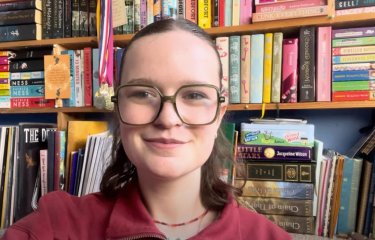Top tips for writing your university personal statement
25 October 2024

This article was written by Musical Theatre BA(Hons) student Ethan.
Writing your university personal statement can initially seem daunting, as knowing exactly where to begin and what you should include can be challenging. This guide will outline how to start your university personal statement, what information you should and should not include, and a few top tips to help you write the best personal statement to stand out in your university application!
How to begin your personal statement
When beginning your university personal statement, you want to keep it simple and specific. Discuss why you want to study your chosen course - this is your opportunity to present yourself as a worthy applicant, so show them why you love the subject and want to study the course at degree level.
However, steer clear of clichés and conventional phrases like “I want to study this because”. Instead, focus on crafting a compelling opening that not only engages the reader but also showcases your enthusiasm for the subject. These openers are heavily overused and seeing them in a statement may make readers reluctant to continue. Aim for a powerful introduction that instantly draws the reader in and reflects your genuine passion for your subject.
What to include in your personal statement
Your undergraduate personal statement needs to be under 4000 characters, which is about two sides of A4. As space is limited, focus on conveying the most relevant and essential information that highlights why you are a suitable candidate. Address key points, including:
- Your motivation for studying this subject: Explain what sparked your interest and what drives your passion.
- Career goals and how this course will prepare you: Share your aspirations and how the course aligns with your long-term plans.
- Your qualities and skills: Highlight strengths and abilities that will help you succeed in the degree.
- Relevant work or academic experience: Include examples that demonstrate how you’ve developed these skills.
For more information and ideas about what else you could include, the UCAS website has provided a list of questions that you can use to help structure your writing and present yourself as an ideal applicant!
What NOT to include in your personal statement
Your qualifications
Part of your UCAS application is dedicated to listing all qualifications you have gained since undertaking your GCSEs. Once the application has been submitted, this information will be available to the universities you have applied for. As you have a limited word count, there is information about yourself that is more vital to discuss in this space. So, there’s no need to take up valuable words by listing information that will already be available on your application!
Mentions of specific universities
Remember that you are only writing one personal statement, so each university you apply to will read the same one. It’s important to avoid mentioning any specific universities. Focusing on a particular university could make other institutions less inclined to consider your application, potentially impacting their decision to offer you a place. Stick to discussing why you want to study your chosen subject at degree level so that you can present yourself as a serious applicant – even if you know what your top choice of university will be.
Top Tips for writing a personal statement
Get to the point
Your personal statement is limited to 4,000 characters, so it’s crucial to be concise. Only include information relevant to the courses you’re applying for and why you are a suitable applicant. Avoid repeating information that can already be found elsewhere in your application. While 4,000 characters may seem like a lot of space initially, this only translates to anywhere between 550 and 1000 words, as punctuation and spaces are included within this limit. For reference, my personal statement totalled 669 words at 3,996 characters!
Tailor your personal statement
In your personal statement, it’s important to convey why you want to study your chosen subject and what makes you a great candidate. A useful approach is the review the course details and take note of what the courses are looking for in an applicant. Then, highlight how your relevant qualifications or experience has enabled you to develop these skills. For example, have you attended classes or workshops where you’ve developed technical skills? Discussing these subject-specific skills will help universities to gain an insight into how you are a good candidate for the course.
Writing your university personal statement doesn’t have to be complicated or overwhelming, and I hope this guide has helped ease some of the stress and clarified the key steps to take. If you have more questions or need further guidance on what to include, check out our comprehensive guide to writing a personal statement. It covers everything you need to know to craft a strong, effective personal statement for your university application.




